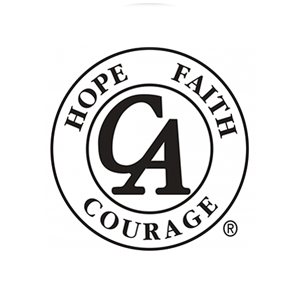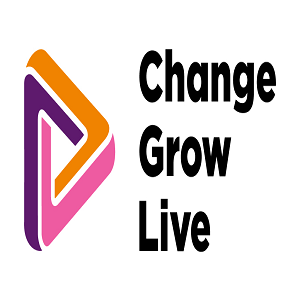Drug & Alcohol Rehab in Crawley

How Does Rehab Work?
The process of rehab helps individuals regain their mental health and their overall quality of life. Rehab involves patient-focused therapy in which behaviours involving drug and alcohol dependence are targeted, coping strategies introduced, and support services provided. Individuals are taught how to avoid relapse and have the option of entering a residential or an outpatient programme. Inpatient rehabilitation requires that individuals stay at a chosen facility or recovery centre full-time. Outpatient rehab programmes have clients maintain their day to day life while attending counselling sessions and group work.
What Happens During Residential Rehab?
Rehab is the first brave step towards recovery and sober living. It can be hard to work on quitting addictive behaviours on your own but with the support of professional intervention, an addiction-free life can be achieved. You may have concerns about the unknown; however, a breakdown of the process can help put your mind at ease.
During rehabilitation, you are going to receive an individualised assessment performed by a professional. The purpose is to determine the best treatment plan based on your history of addiction and current condition. Here, medical staff will look for comorbid disorders such as mental health conditions that exist alongside addiction.
Detox is an essential phase of a recovery programme. It involves the safe removal of drugs and/or alcohol from the body. When detox is performed with medical intervention, withdrawal symptoms can be monitored, and its severity managed. This can significantly improve the chances of success and minimise relapse.
During rehab, you will receive therapy. Treatment can be accessed on an inpatient or outpatient basis. Therapy consists of individual counselling including Cognitive Behavioural Therapy, skill-building and group sessions.
1. Assessment

To receive the best treatment to suit your needs, an assessment is the first stage in the recovery approach. Assessments are performed by a medical professional and can include a telephone screening. The professional asks questions regarding your overall health, your substance use, any history of addiction, and whether you may have any comorbid mental health issues. A telephone assessment supplies staff members with important information that will help to safely manage the detox process.
When you wish to pursue treatment for drug and alcohol addiction, a medical assessment should be completed. Assessments will guide therapy because it provides staff with the information, they need to develop a tailored treatment plan or advise on the appropriate intervention.
2. Detox

Detox involves the cessation of drugs and alcohol from the body. With professional help, it is safely facilitated and is most commonly monitored in a private rehab because of risks associated with withdrawal.
Detox is important where substance misuse and addiction are present. It should be managed by experienced and knowledgeable medical staff to prevent uncomfortable and severe withdrawal symptoms. For those who go through withdrawal symptoms, there is a greater risk of relapsing if not managed within a rehab clinic. In a residential setting, qualified staff may offer medication to minimise uncomfortable withdrawal. The approach for therapy, once detox is finished, is determined by the assessment.
3. Therapy

Therapy includes the one-on-one and group sessions you will attend with a qualified therapist, counsellor, and support staff. Treatment is provided in both a residential rehab or as part of an outpatient service. The direction for therapy will depend on individual needs.
Step by Step Process for Residential Rehab
To understand your medical and mental health history.
Arrange a suitable date to begin your journey to recovery.
Begin the managed withdrawal process from substances including alcohol.
To understand the root cause of addiction and how to overcome it.
Aftercare is provided to help manage the risk of relapse.
To help heal the wounds that addictive behaviour has caused others.
Find your Nearest Rehab Centre in Crawley
The nearest rehab centre is he Recovery Lighthouse – Drug Rehab & Alcohol Rehab West Sussex.
Address: The Recovery Lighthouse – Drug Rehab & Alcohol Rehab West Sussex, 18 Winchester Rd, Worthing BN11 4DJ, United Kingdom
Call 0333 4444 432 to discuss your alcohol or drug rehab requirements and any other questions you may have about the process of residential rehab.
Outpatient Addiction Services in Crawley
To make an informed decision on which form of treatment will help you in your journey to overcoming dependence, it is important to look at the pros and cons of outpatient and residential rehabilitation. Outpatient care can be very useful as it provides a flexible and cost-effective alternative to residential rehab.
Outpatient programmes are not a round-the-clock or even a 12-hour programme, but rather involve weekly sessions with a therapist or group. Individuals will remain at home and continue to work or tend to family matters while receiving the necessary therapy.
Private Outpatient services include therapy with counselling sessions delivered by a therapist/counsellor. Sessions can last up to 90 minutes. Free addiction treatment does exist through one of the many reputable charities in the UK (Turning Point), but it does not provide the same individualised care that private services provide.
NHS Free Addiction Services in Crawley
The Benefits of Outpatient Services
Private Outpatient programmes will include individualised care plans to address the specific problems and challenges that are leading to addictive behaviours. Outpatient assistance is commonly sought by individuals who have family commitments or those who need to work full-time. Outpatient programmes are more affordable than inpatient addiction treatment.
The Challenges of Outpatient Services
While outpatient services play a vital role in accessible addiction treatment, it is also associated with a higher relapse potential. While free outpatient services do exist through the NHS or UK-based charities, waiting times are to be expected and treatment tends to be more generic.

How Much Does Rehab Services Cost in Crawley?
Drug or alcohol addiction treatment within a residential setting can cost around £1500- £4000 per week. In the event private addiction treatment is not an option, our goal is to guide you to find the right recovery programme that suits your budget requirements.
Fortunately, free programmes are provided by organisations including the NHS and charities such as Turning Point (that requires self-referrals). Other organisations that provide free and community-based programmes for drug or alcohol addiction include Alcoholics Anonymous (AA), Cocaine Anonymous, and Narcotics Anonymous.
Support Groups in Crawley

Crawley
Ifield Community Centre, 41 Ifield Drive RH11 0DG

Crawley Step & Tradition Online
St Paul's Methodist Church, Woodfield Rd, Northgate RH10 8ER

Men's Meeting
Three Bridges Community Centre, 23 Gales Pl, Three Bridges, Crawley RH10 1QG
The Pros and Cons of Seeking Treatment in Your Local Area
Pros
1. You are familiar with the area which may provide a layer of comfort/safety.
2. Loved ones can easily travel to visit or are close by.
3. You may save on the costs of travelling long distances for addiction treatment, or free addiction services may only be offered in your hometown.
Cons
1. A local environment means access to drug dealers or other triggers. This is more of a concern if you choose outpatient programmes.
2. Not considering locations outside your area could mean a missed opportunities for more valuable and rewarding programmes.
3. Addiction treatment services that are close by don’t always provide the best standard of rehab.
If you are unsure of how to look for a rehab service you can trust, consider the CQC. The CQC website offers listings of rehabilitation services and organisations that are ranked according to the standard of its services.

